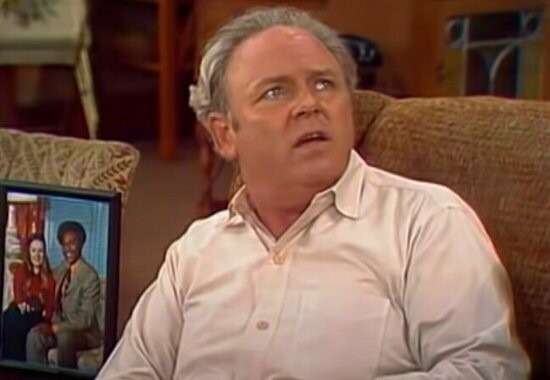
Discover how All in the Family broke television norms, sparked national debates, and redefined American pop culture. This iconic sitcom’s impact still echoes through modern entertainment.
When TV Got Real: How ‘All in the Family’ Changed American Culture Forever
In the golden era of feel-good television, All in the Family burst onto the screen like a thunderclap of honesty. Premiering in 1971, it quickly became one of the most controversial yet influential sitcoms in American history. Through its unfiltered lens on race, politics, gender, and generational conflict, the show didn’t just reflect society—it held a mirror up to it.
The Birth of Unapologetic Storytelling
At the center of it all was Archie Bunker—gruff, outspoken, and bigoted. But he wasn’t a villain; he was a deeply flawed, complex man who represented a segment of America that many preferred to ignore. Played masterfully by Carroll O’Connor, Archie forced viewers to confront uncomfortable truths about prejudice, ignorance, and change.
The show’s boldness wasn’t just in Archie’s rants, but in the way it tackled taboo topics head-on: racism, abortion, LGBTQ+ rights, Vietnam, and women’s liberation. No other sitcom dared to be this raw—this real.
The Role of Edith and the Supporting Cast
Jean Stapleton’s Edith Bunker, Archie’s sweet and often underestimated wife, brought balance to the show’s intensity. Her compassion and quiet strength gave the series its emotional heartbeat. Characters like Gloria, Mike, and even later additions like Lionel and George Jefferson gave the audience multiple generational and cultural viewpoints to relate to—or argue with.
A Cultural Wake-Up Call
All in the Family didn’t just entertain—it started conversations across dinner tables and in newsrooms. It was the first time many Americans saw their most controversial beliefs and experiences depicted in primetime. In doing so, it helped normalize discourse about race, class, and gender in ways no show had before.
A Legacy That Still Shapes Television
Without All in the Family, there would be no The Simpsons, Family Guy, or even Modern Family. It proved that sitcoms could be vehicles for societal change while still delivering laughs. Its spin-offs, like The Jeffersons and Maude, expanded on its legacy by tackling issues from different cultural angles.
More than five decades later, its influence remains unmistakable. In a world now driven by inclusivity and bold storytelling, All in the Family laid the groundwork—brick by brick, laugh by uncomfortable laugh.
Conclusion: A Sitcom That Became a Movement
All in the Family wasn’t just ahead of its time—it created a new timeline for what television could be. It redefined how audiences viewed comedy, politics, and themselves. The show made TV real, and in doing so, it reshaped American culture forever.
